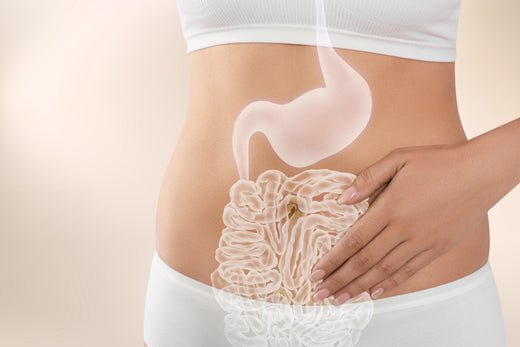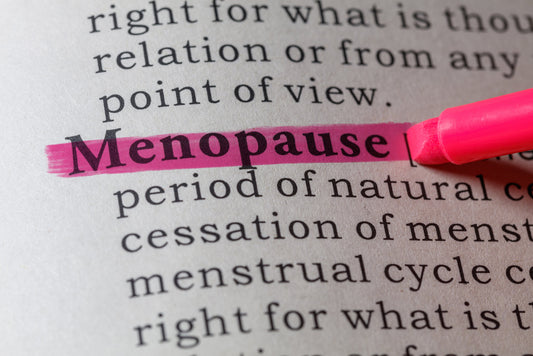Perimenopause, the transitional phase leading to menopause that can start in our mid-30s and last between 2 and 8 years, brings about many changes in a woman's body, driven primarily by fluctuations in hormone levels. This period can significantly affect not only our physical health but also our emotional and mental well-being. One often-overlooked aspect is how perimenopause impacts vaginal health. As estrogen levels decrease, the vaginal microbiome — the collection of bacteria in the vagina — can become imbalanced, leading to discomfort and increased susceptibility to infections.
Understanding Vaginal Microbiome Changes in Perimenopause
The vaginal microbiome is predominantly made up of Lactobacillus species, which produce lactic acid that maintains an acidic vaginal environment. This acidic environment prevents the growth of harmful bacteria and supports overall vaginal health. However, during perimenopause, as estrogen production declines, the vaginal lining becomes thinner, and the pH of the vagina may increase, making it less acidic. This creates an environment where harmful bacteria can thrive, leading to conditions like bacterial vaginosis (BV) and yeast infections.
Additionally, other symptoms like dryness, irritation, and painful intercourse may arise as the balance of the microbiome shifts. Vaginal probiotics, specifically those containing Lactobacillus strains such as Lactobacillus rhamnosus and Lactobacillus reuteri, can restore balance and support a healthy vaginal environment.
The Benefits of Vaginal Probiotics for Perimenopausal Women
-
Restoring Vaginal pH and Microbiome Balance One of the primary benefits of vaginal probiotics is their ability to restore and maintain the vaginal microbiome. Lactobacillus strains help lower the vaginal pH to its optimal acidic level, making it harder for harmful bacteria to grow. A healthy pH is crucial in preventing recurrent infections like bacterial vaginosis (BV) and yeast infections, which tend to become more frequent during perimenopause.
-
Relief from Vaginal Dryness and Discomfort Vaginal dryness is a common complaint among women in perimenopause. As estrogen levels drop, the vaginal tissues lose moisture and elasticity, causing discomfort. Some studies suggest that probiotics may help enhance vaginal lubrication and alleviate symptoms of dryness by promoting a healthy mucosal lining in the vagina.
-
Prevention of Vaginal Infections Perimenopausal women are more prone to vaginal infections due to shifts in their microbiome. The most common infections include bacterial vaginosis (BV) and yeast infections, both of which can cause itching, burning, and abnormal discharge. Probiotic supplements containing Lactobacillus strains have been shown to effectively reduce the occurrence of these infections by outcompeting harmful bacteria and yeast.
Additionally, probiotics may support women who are taking antibiotics, which can often disrupt the microbiome, leading to an overgrowth of harmful bacteria or yeast. Taking probiotics alongside antibiotics (with a time gap) may help counteract this effect and reduce the risk of infections.
-
Support for Overall Menopausal Health Beyond vaginal health, probiotics can offer benefits for other menopause-related issues such as gut health, bone density, and mood regulation. Certain Lactobacillus strains, such as Lactobacillus rhamnosus, have been shown to improve bone mineral density, which is critical for women in perimenopause and menopause as they become more susceptible to osteoporosis. Other strains may help regulate gut health, which is often linked to better mood and immune function, providing a holistic approach to managing menopausal symptoms.
- Non-Hormonal Support for Vaginal Health Vaginal probiotics provide a natural and generally safe alternative for women who prefer non-hormonal solutions to vaginal health issues. Vaginal probiotics are a natural and generally safe alternative. They work by replenishing beneficial bacteria, reducing vaginal infections, and promoting overall comfort without the need for added hormones.
How to Choose the Right Vaginal Probiotic
Not all probiotics are created equal, so choosing the right product is essential for optimal benefits. Here is what to look for:
-
Strain of Probiotics: Look for probiotic supplements that contain strains of Lactobacillus, particularly Lactobacillus acidophilus, Lactobacillus rhamnosus, and Lactobacillus reuteri. These strains have been the most researched for their benefits in supporting vaginal health at any life stage, including during menopause.
-
Delivery Method: Vaginal probiotics can be taken orally or as vaginal inserts. Both methods can be effective, so it’s worth considering what works best for your routine. Oral probiotics have the added benefit of supporting gut health, which can benefit vaginal and gut health as well.
-
Colony Forming Units (CFUs): The number of live bacteria in a probiotic is measured in CFUs. Look for probiotics with at least 1 billion CFUs. Higher counts may be beneficial if you’re dealing with frequent infections. However, more is not always better and you may end up overpaying for higher CFU with little to no incremental benefit.
- Storage and Shelf Life: Some probiotics require refrigeration to keep the live bacteria intact, while others are shelf-stable. Make sure you follow storage instructions to ensure the bacteria remain effective.
Incorporating Probiotics into Your Routine
While taking vaginal probiotics can significantly improve vaginal health during perimenopause, they work best as part of a broader healthy lifestyle. Making small changes to your diet can have a big impact on the efficacy of probiotics in general:
- Try adding fermented foods like yogurt, kefir, sauerkraut and kimchi to your routine for some additional probiotic support.
- Include Prebiotics in your diet, which are found in foods like bananas, garlic, onions, and whole grains. Prebiotics play an important role by feeding the good bacteria in the Probiotics so they can get to work.
- Stay hydrated and increase your fiber intake. That can support both gut and vaginal health during perimenopause.
Vaginal Probiotics for all life stages, including Perimenopause
Vaginal Probiotics support vaginal health during all life stages and for perimenopausal women in particular, vaginal probiotics offer a promising, non-hormonal solution to maintain a healthy vaginal microbiome. By restoring pH balance, preventing infections, and providing relief from vaginal dryness, probiotics can play a critical role in improving comfort and quality of life during this transitional phase. With the right probiotic supplements and lifestyle changes, we can take charge of our vaginal health and navigate perimenopause with greater ease and confidence.
BEST Vaginal Probiotics
When it comes to vaginal health, BEST Vaginal Probiotic is your vagina’s best friend. Our vaginal probiotic supplement is specially formulated to promote a balanced vaginal pH and microbial flora.
Containing only natural ingredients and 4 strains of probiotics like Lactobacillus acidophilus, Lactobacillus rhamnosus, Lactobacillus Reuteri, and Lactobacillus Fermentum, as well as Prebiotics that act like food for probiotics strains to help them act faster, our vaginal probiotic helps restore balance in the vagina’s microbiome within 3-8 weeks. It’s also loaded with Cranberry extract to support urinary tract function if you are prone to UTIs.
![]()
BEST supplements are formulated with the most effective, science-backed ingredients out there, and nothing else. No fillers, no false promises, and no B.S.
Just the right doses, delivered the right way, with results that actually matter.
Because your BEST health starts with the BEST standards. And we’re here to deliver both.
*These statements have not been evaluated by the Food and Drug Administration. This product is not intended to diagnose, treat, cure, or prevent any disease.









